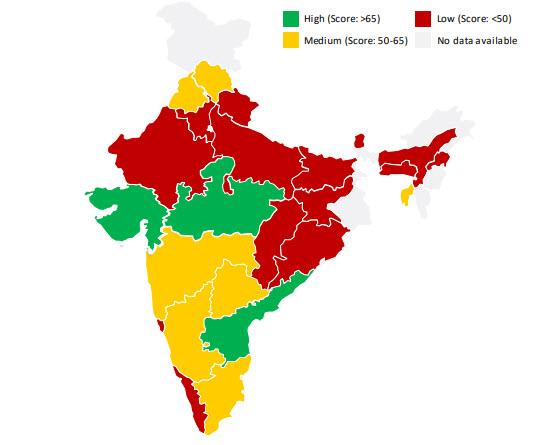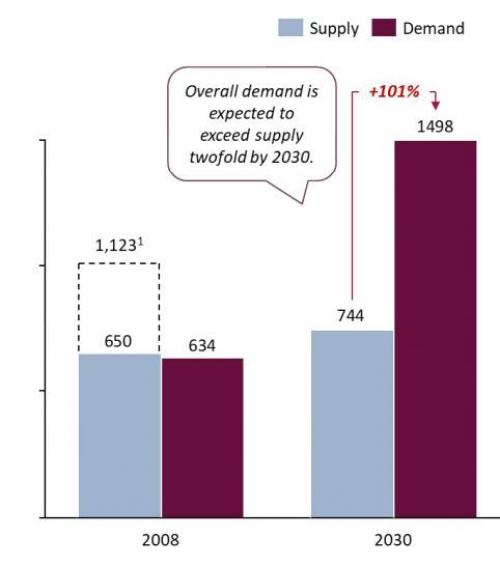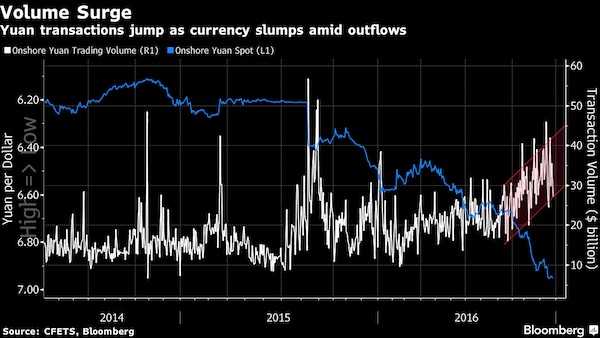
Marcel Duchamp Sonata 1911

This is just too perfect.
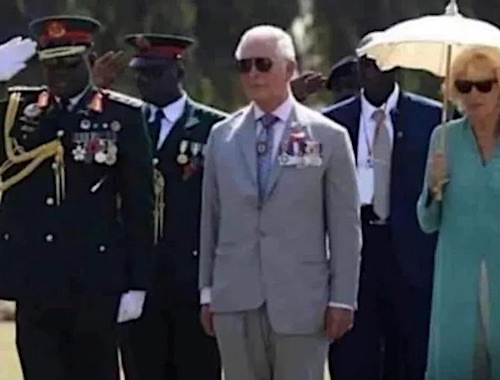

Child myocarditis ad
🤡🌎 children myocarditis ads are now a thing pic.twitter.com/fSLHhWSOj9
— Clown World Today 🤡🌎 (@cwt_news) September 17, 2022



Putin fertilizer
Putin: The West is blocking Russian efforts to donate fertilizer to the poorest nations. pic.twitter.com/jmikxLR3Yc
— Putin Direct (@PutinDirect) September 17, 2022

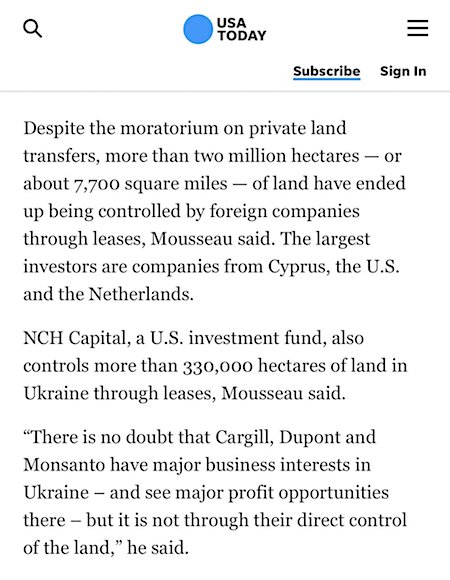



How Maidan turned into War
https://twitter.com/i/status/1570832651405361152


PCR wanted a quicker resolution. Putin wanted to minimize civilian casualties. Maybe he trusted too much that others wanted that too.
• Ukraine Is No Longer a “Limited Military Operation” (Paul Craig Roberts)
I was criticized as “blood-thirsty” by commentators incapable of strategic thought when I said that a limited operation would result in a wider war and more casualties to both sides than a swift conquest of Ukraine before the US and NATO had a chance to get involved. What Southfront calls the “unpredictable results” of the widening war will continue to prove me correct. Everyone who watched Washington’s limited involvement in Vietnam grow into a full-fledged long war should have known better than to repeat the folly. Apparently, the lesson escaped the Kremlin. Perhaps Putin won’t be able to stomach war with his “Western partners,” or the NATO countries will back out of the war in order to secure Russian energy and forestall economic and political collapse. But perhaps not.
I don’t think the Ukraine/NATO offensive in the Kharkov region was a success, but the media has played it as one and this will encourage the Washington neoconservatives, who have controlled US foreign policy since the George W. Bush regime, to push harder. As the US and NATO are already deep into the conflict, providing weapon systems, intelligence and targeting information, training, and now military personnel, it is easier for them to get in deeper than to withdraw. Putin might like to withdraw as he watches a dangerous wider war creep up on him, but he can’t without being regarded as a failure who led Russia to defeat. I conclude that the odds seem to be in favor of a larger war. To be clear, my purpose is not to pillory Putin or to produce a Russian victory. My purpose is to avoid a conflict that neither side can afford to lose. The only way to insure that outcome would have been a swift Russian victory over the entirety of Ukraine, not a “military intervention” in one corner of the country that festers month after month.
A convincing demonstration of Russian military prowess would have dissuaded Finland and Sweden from joining NATO as it would have demonstrated the inability of the limited forces at NATO’s disposal to defend anyone against the kind of attack Russia could have unleashed on Ukraine. I even entertain the possibility that NATO would have dissolved as Europe realized that its real interest is to be at peace with Russia. Unfortunately, those opportunities have passed untaken, and now we are faced with an interminable conflict unless the Kremlin abandons its failed policy and acts decisively. With winter approaching Europe will soon be overwhelmed with economic and political problems produced by being cut off from Russian energy by Washington’s sanctions. Unless Putin rushes to Europe’s rescue, Europe will soon be out of the conflict.
As the Western media functions as a Propaganda Ministry, few people in the world understand that Russia has committed few troops to the conflict. The Russian force has always been outnumbered by Ukraine’s forces, but superior Russian firepower has made the difference. If Putin were to commit another 100,000 soldiers and deprive Kiev and Western Ukraine of power and communication, he could still bring the conflict to an end before it widens out of hand. What is required is acceptance that the war has widened and requires decisive Russian action to bring the war to an end before the war widens further and becomes uncontrollable.

“.. It should cede Transcarpathia to Hungary, Galicia to Poland, Bukovina to Romania, Donbass and Crimea to Russia. These are the territories of other countries..”
• Ukraine Fumes Over ‘Unnatural Borders’ Claim (RT)
The Ukrainian Embassy in Romania has accused the EU country’s former foreign minister, Andrei Marga, of undermining the“basic principles of international law,” after he claimed that the borders of modern Ukraine are “unnatural,” and suggested that Kiev should cede parts of its territory to the neighboring states. The embassy has voiced its “regret” that a former top official of a “democratic European state” would make a statement that is not just “unacceptable under any circumstances,” but also represents a “particularly blatant deviation at a time when Ukraine heroically defends its independence and the security of Europe.”
The former Romanian diplomat made the controversial remark earlier on Saturday at the Alba Transylvania book fair, where he presented his new book ‘The Fate of Democracy’ and suggested that leading world powers should come together and agree on a new “security structure” in Europe and worldwide. “We are in a very special situation here, and I take this with all responsibility, Ukraine exists in unnatural borders. It should cede Transcarpathia to Hungary, Galicia to Poland, Bukovina to Romania, Donbass and Crimea to Russia. These are the territories of other countries,” he said, listing the regions that were incorporated into then-Soviet Ukraine by the Communists, but which he thinks should be relinquished. Over the course of the ongoing conflict between Russia and Ukraine, Kiev has repeatedly vowed to return to its control all of the territories it ended up with following the collapse of the Soviet Union.
After the 2014 Maidan coup, Ukraine lost Crimea, which ended up re-unifying with Russia after a referendum. In February 2022, the Kremlin recognized two Donbass republics as independent states, citing Kiev’s failure to implement the Minsk agreements, designed to give the regions special status within the Ukrainian state. Kiev insists the Russian offensive was completely unprovoked, even as Former Ukrainian President Pyotr Poroshenko had admitted that Kiev’s main goal was to use the ceasefire to buy time and “create powerful armed forces.” Moscow has since demanded that Ukraine officially declare itself a neutral country that will never join any Western military bloc.

With NATO support, they will try and shell it until Russia leaves.
• Ukraine Once Again Endangering Nuclear Plant – Moscow (RT)
Ukraine has again shelled the area around the Zaporozhye Nuclear Power Plant in an effort to undermine the facility’s safety, Russia’s Defense Ministry claimed on Saturday. The ministry said that “the Kiev regime has resumed provocations to create the threat of a man-made disaster” at the plant. Within the last 24 hours, the Russian military registered two Ukrainian artillery strikes, one on a suburban settlement and the other on a thermal substation in the vicinity of the facility, which has been under Russian control since March. “In total, 15 artillery shells were fired from the Nikopol area of the Dnepropetrovsk region. The artillery units of the Ukrainian Armed Forces were suppressed by retaliatory fire,” the statement read. According to the Defense Ministry, the radiation situation at the plant remains normal.
Moscow has repeatedly accused Ukrainian forces of shelling the grounds of the plant, warning that the attacks could trigger a disaster that would eclipse the Chernobyl incident. Earlier this week, the head of Russia’s Security Council, Nikolay Patrushev, accused Washington of supplying Kiev with crucial intelligence to designate targets for shelling around the facility. “The consequences of these provocations could be very catastrophic not only for the majority of the population of Ukraine and Russia but also for Europe, and in terms of their scale they could surpass the tragedies that occurred at the nuclear power plants in Chernobyl and Fukushima,” he said at the time.
Ukraine has blamed Russia for the incidents, alleging that Moscow has been carrying out the strikes to frame Ukraine, even though its military eventually admitted to targeting the area. Following the International Atomic Energy Agency (IAEA) mission that visited the Zaporozhye plant in early September, the UN’s nuclear watchdog adopted a resolution demanding that Russia “immediately cease all actions against and at” the plant. Russian officials, however, criticized the document, saying that it failed to mention Ukraine’s attacks on the station. Blasting the resolution as “anti-Russian,” Moscow also accused Western nations of “supporting and shielding” Kiev in “every possible way.”

“..Moscow “has such an advantage” in the conflict that it could define what would constitute victory and declare it “almost at any time.”
• Russia Can Declare Victory ‘Whenever It Wants’ – Budapest (RT)
Given Russia’s clear upper hand in Ukraine, the Kremlin can define what constitutes victory and declare that it has been achieved whenever it sees fit, a Hungarian minister has claimed. On Friday, Gergely Gulyas, the minister in charge of the Hungarian Prime Minister’s Office, shared his view of the conflict in Ukraine at a roundtable discussion at the University of Public Service in Budapest, which was held to promote a new book titled ‘Russian Great Power Policy 1905-2021.’ The official said that Ukraine and Russia have both found themselves in a situation that they are having a hard time getting out of. He added that the “chances of peace” right now are “poor” – though Moscow “has such an advantage” in the conflict that it could define what would constitute victory and declare it “almost at any time.”
He went on to warn against any direct involvement by NATO, adding that the EU sanctions on Russia have so far backfired, hurting the bloc more than the intended target. Gulyas noted that the Western restrictions have “brought incredible income” for Moscow so far. Furthermore, the EU’s policies, he believes, could result in Russia drifting further away from Europe while becoming closer with Asia. While Budapest joins the US in condemning Russia’s military operation in Ukraine, this does not mean that Hungary is prepared to impose similar sanctions on Moscow, as this would go against the country’s own national interests, the minister noted.
On the topic of Ukraine, Gulyas accused Kiev of failing to protect the basic rights of ethnic minorities, particularly Hungarians. In 2017, the Ukrainian government adopted a law aimed at removing minority languages from Ukrainian schools, which Budapest sees as discriminatory. Kiev has long accused its Western neighbor of fanning secessionism among Ukraine’s Hungarian diaspora, including by allegedly secretly granting citizenship to ethnic Hungarians.

“..should a nuclear or chemical attack take place, Russia would “become more of a pariah in the world than they ever have been..”
You mean, just like the US?
• Biden Warns Russia Against Nuclear Option In Ukraine (RT)
US President Joe Biden has warned Russia of harsh consequences should it use nuclear or chemical weapons in Ukraine. In an interview with CBS News, a part of which was released on Friday, Biden was asked what would he say if he learned that Moscow is considering the use of weapons of mass destruction to counter what Kiev calls a successful counter-offensive in the east. “Don’t. Don’t. Don’t. You will change the face of war unlike anything since World War II,” he said. The president, however, declined to outline what the US’ response would be. “You think I would tell you if I knew exactly what it would be? Of course I’m not gonna tell you. It’ll be consequential.”
However, he said that should a nuclear or chemical attack take place, Russia would “become more of a pariah in the world than they ever have been,” and America’s response would depend “on the extent of what they do.” In mid-August, Russian Defense Minister Sergey Shoigu dismissed claims that Moscow might use nukes in Ukraine as “absurd,” saying there are no targets in Ukraine that would warrant doing so. Russia’s current nuclear posture allows their use only when “the very existence of the state is threatened.”

Of course, this is all blah. Clickbait. Russia’s doctrine is crystal clear, and there’s no sign they would violate it.
• Kremlin Responds To Western Nuclear Claims (RT)
Moscow has reiterated that its nuclear doctrine is self-explanatory as top Russian officials repeatedly stated that the conflict in Ukraine does not meet any of its criteria. The statement followed US President Joe Biden’s threat of a harsh, “consequential” response should Russia use the weapons of mass destruction. “Read the doctrine, everything is written there,”Kremlin Press Secretary Dmitry Peskov told RIA Novosti on Saturday, when asked about the possibility of Russia using nuclear weapons in Ukraine. According to Russia’s nuclear posture, Moscow reserves the right to use nukes only “in response to the use of nuclear and other weapons of mass destruction against Russia or its allies,” as well as “in response to a conventional attack that threatens the very existence” of Russia as a sovereign state.
The latest update to the doctrine, made in 2020, clarified two more scenarios for the possible use of nukes: in case of receiving “credible information about the launch of ballistic missiles” targeting the territory of Russia or its allies, or an attack “on critical infrastructure that controls nuclear weapons,” potentially rendering the deterrent inoperable. However, none of these hypothetical scenarios is relevant to the situation in Ukraine, Russian officials told the UN Non-Proliferation Treaty (NPT) review conference in New York on several occasions last month. In mid-August, Russian Defense Minister Sergey Shoigu also dismissed as “absurd” claims that Moscow might use nukes in Ukraine, saying there are no targets there that would warrant doing so.
Russian President Vladimir Putin told reporters on Friday that so far, Moscow has demonstrated a reserved reaction to actions by the Ukrainian authorities, such as attempts to target vital infrastructure on Russian soil or to stage “terror attacks.” “We’re witnessing attempts to stage terror attacks, attempts to damage our civilian infrastructure. We respond to this with restraint, but only for the time being,” Putin stated, triggering speculation that the approach may change in the future.

To cripple Europe?!
• The Real Reason The US Wants To Sanction China (Marsden)
The impact of anti-China sanctions on the EU would be devastating, particularly in light of the economic blow that the bloc has already taken from anti-Russian sanctions slapped on its own cheap Russian energy supply as a result of being egged on by Washington to stand in solidarity with Ukraine. China is one of Germany’s top customers, and Berlin is already facing near-deindustrialization as a result of the anti-Russian sanctions impact on its industrial sector. Washington has previously issued exemptions to its own restrictions for American entities. For instance, even in the case of its sanctions on Moscow, “the U.S. is issuing a number of “authorized-transaction notices and general licenses” to shield some corporate targets from the harsh economic measures contained in the sanctions,” according to a LexisNexis report.
But the path to any such US sanctions exemption for foreign entities is less clear. In the case of Russian oil, for example, the EU is dependent on the good graces of Washington if it wants to keep importing US-sanctioned Russian fuel. So basically Washington can use the restrictions to control and dictate trade in the EU and beyond. Unless, of course, enough countries get fed up with it and seek out an alternative system. Which is exactly what seems to be evolving in the wake of the West’s Ukraine-related sanctions, with Russia, China, Iran, and the global south deepening cooperation that could ultimately bypass the Western financial sphere.
It’s hardly surprising that the China sanctions talk comes in the wake of a US State Department visit to Mexico City this month, to pitch Mexican semiconductor manufacturing as part of a $50 billion investment that would facilitate US independence from the approximate $1 billion worth of semiconductors that America imports annually from China. The US is working to secure its own interests – as every country should. It’s clearly willing to pull out every stop to maximize its global competitiveness. Perhaps one of these days its allies will start following suit and doing strictly what’s best for themselves and their own citizens, even if it means diversifying their interests away from Washington’s.

“Britain has assumed an extremely tough anti-Russian position, not bothering to see into the causes of the war, or think about its own interests.”
[..] since the 1950s, London has mastered the role of “Washington’s junior partner,” which implies a bigger role in NATO and exclusivity towards Europeans. Decades later, Liz Truss continues to play this very card in Ukraine, just as Boris Jonson did before her. Britain has assumed an extremely tough anti-Russian position, not bothering to see into the causes of the war, or think about its own interests.
It support a president who banned the official use of his country’s most widely spoken minority language, who sanctioned the torture of prisoners and persecution of ethnic minorities, a president whom Britain supplies with weapons and military instructors, and writes off debts. Taking a cue from the Johnson Cabinet, Liz Truss will try to convince Britons that since the struggle for England and its age-old imperial interests is now going on in the Ukrainian steppes, the British people must prepare for hardships – heating problems, rising tariffs, inflation and increased defense outlays. At the same time, the conflict in Ukraine will give London a chance to put a temporary damper on such controversial issues with Europe, as fishing quotas, relations with the EU in Northern Ireland, the situation around the economic status of Gibraltar, etc.
Meanwhile, the Russian market is closed to Western countries, the Russians turned to the East, where they quickly redirected the flow of raw materials supplies. Western arms deliveries to Ukraine allow Kyiv to fight on, but the Ukrainian economy is no longer able to support the very existence of the Ukrainian state, which requires monthly financial infusions from its Western allies. British mercenaries captured in Ukraine are tried and sentenced to death in the Donbass republics, and London cannot do anything to get them out. Of course, already the second British government in six months cannot be accused of waging a proxy war against Russia, which is a time-tested way to weakening the enemy. But is Russia weakening? And how will the British gain from this war? Will Ukraine ever be able to repay all the investments that London has sunk in it since February 2022?

Governments will fall. But how many? How long can the EU survive?
• Angry Customers Demand Explanation As German Energy Bills Soar (ZH)
Utilities in Germany have had to handle a surge in customer service calls in recent weeks from clients angry or desperate about their sky-rocketing energy bills, Reuters reports.The biggest utility, E.ON, has ramped up its capacity to handle calls from consumers who are shocked to find just how much their energy bills have surged in recent months. Gas prices in Europe are very high and power prices in many countries, including Germany, have hit record levels this summer after Russia choked pipeline gas supply to Europe and shut down indefinitely the key gas export pipeline to Germany, Nord Stream, at the beginning of this month.
“Some become aggressive out of frustration, others are in tears and need psychological support,” Ingbert Liebing, head of local utilities organization VKU, told Reuters, commenting on the spike in customer calls to utilities’ service centers. Apart from already high energy bills, German customers will have a surcharge as of October, as part of a government plan to implement a so-called gas levy on consumers in order to help struggling energy firms. Germany has recently announced it would impose a gas levy on consumers from October 1 through March 2024 as it aims to help energy providers and importers of natural gas, which are struggling with low Russian gas supply and very expensive alternatives to Russian gas. The new natural gas tax is set to cost German families, who will have to foot the bill for the tax, an extra $500 a year.
Meanwhile, the German government is in talks with the biggest German importer of natural gas, Uniper, to potentially lift its 30% stake in the company to majority participation or to nationalize the firm. The German government agreed in July on a $15 billion bailout package to help the energy giant, which has been reeling from reduced Russian gas supply and soaring prices of non-Russian gas. Under the package, the German government bought a 30% stake in Uniper and made available further capital to help the company. “The deteriorating operating environment and Uniper’s financial situation have to be taken into account while Fortum, the German government and Uniper continue their discussions on a long-term solution for Uniper,” Uniper’s parent firm, Finland-based Fortum, said in a statement earlier this week.

“The proper description for what is happening in Europe is really an energy and food price shock rather than a general inflation.”
• Zugzwang – Are We On The Brink Of A Central Banking Paradigm Shift? (Tooze)
Central banks around the world are under pressure. Surging prices stoke fears of inflation. Central bankers, who commonly define themselves as guardians of price stability, feel forced to react. Interest rates are their preferred tool. Higher rates take steam out of the economy. That should lower inflation. The price is pain for borrowers and the risk of a recession and rising unemployment The choice for central bankers is easier where price increases are taking place across many sectors, meaning that the economy is undergoing a general inflation. This includes wages rising along with prices. The correlation between wages and prices should be regarded neither as anomalous nor as a dangerous “second round effect”. It should, in fact, be definitional of a general inflation.
Wages are the price of labour. If wages are not rising along with other prices, then you are not dealing with a general inflation at all, but rather a one-sided redistributional push by capital at the expense of labour. A truly general inflation will commonly go hand in hand with a relatively strong economy with low unemployment. In this respect there is a big difference between the situation on either side of the Atlantic. In the US, the Fed is facing a general inflation, modest in pace, but broadly based. Price increases are not uniform, they never are. But they now extend from bottleneck sectors, such as energy and food, to rents and house prices. Wages are also rising broadly in line with prices.
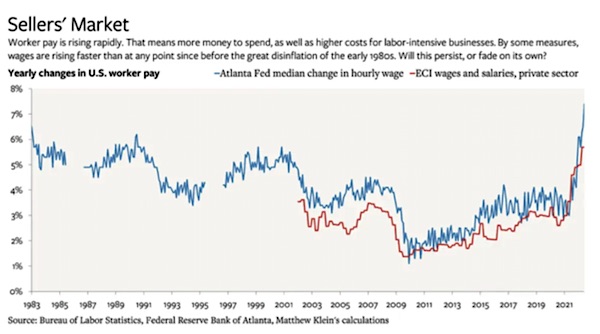
The situation in Europe is quite different. Price increases are far less broad-based. The proper description for what is happening in Europe is really an energy and food price shock rather than a general inflation. The energy price shock is sufficiently serious, to threaten a socio-political crisis as household expenditures and business budgets are wrenched out of balance by the price of gas and electricity. But to insist that this is an “inflation” problem and thus properly the domain of central bank interest rate policy is, to say the least, question-begging. What good will interest rate increases do in slowing down a surge in gas prices caused by the uneven COVID recovery, Putin’s war in Ukraine and the lack of integration in the global gas market?
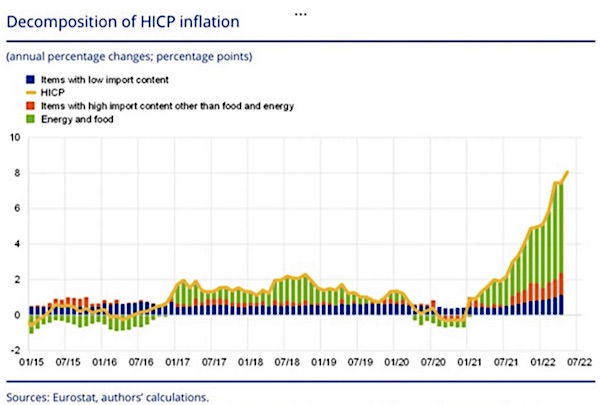

Roll over.
• The Simple Facts On Equities And Debt (Denninger)
Corporations basically never pay off debt; they always roll it over. Since 1980, roughly, the cost of money has always been cheaper, so every time that bond comes due and has to be rolled over the amount of money you must pay in interest on the new one is less. This in turn means the amount the corporation pays in interest goes down and that means “E”, or earnings, go up. But — this cycle presumes that rates will never rise. That is, at worst the downward movement will cease, but never go the other way. Why? Because if it does (and it is and has for the last six months or so) then every time your bond comes due now you need to pay more in interest on the new one that replaces the old and that makes “E” go down. “E” is simply what’s left of what you take in after you pay expenses, of course, and if you have debt outstanding interest is one of your expenses.
People say The Fed “can’t” raise rates. Well, they are. And worse, the TNX, 10 year Treasury, broke range and is likely headed to about 5% which means a “AAA” corporate bond should carry a coupon of somewhere between 5.5-6% because no matter how good that credit may be it is inferior to the US Treasury. When the best credits out there roll over the next time, which they all will within the next couple to ten years, they will pay that 6% where they were paying 2 or 3%! The only other option is to redeem the bond entirely which means forking up the face value in cash. Take a firm that is regard as very well-managed — Berkshire. They have $119 billion in debt outstanding, and are certainly a AAA credit. Let’s assume that $119 billion currently carries a 2% coupon, so $2.38 billion in interest expense a year.
The firm’s net income is $11.7 billion so what happens if the cost of carrying that debt doubles (say much less triples.) That’s a 20% whack off the earnings; if the cost triples its a massive 40%. How does the “current” 58 P/E sound to you or even the so-called “forward projection” (commonly called a guess) if the earnings crash by nearly half? Yeah, that’s what I thought. Oh, and this ignores input costs, which of course you can’t. As another example look at FedEx which reported last night. Revenues largely met expectations but EPS missed by a third. Where’d that come from? Costs, obviously. And, I might add, roll costs, that is, the spike higher in interest expense on outstanding debt are not yet showing up in any material size – but they most-certainly will over coming quarters and years; it is unavoidable for anyone with outstanding paper.

But he’s still your friend?!
• ‘Fauci Knows’ He Funded Gain-of-function Research – Redfield (JTN)
The former Center for Disease Control and Prevention director who was cast as a conspiracy theorist for saying the evidence supported the lab-leak explanation for COVID-19 – allegedly provoking death threats – claims that the real “conspiracy is Collins, Fauci, and the established scientific community.” Robert Redfield told former Senate Finance Committee investigator Paul Thacker that National Institute of Allergy and Infectious Diseases Director Dr. Anthony Fauci “knew” he funded gain-of-function research that makes viruses more dangerous, and “misled Congress” when he denied it,” but “[n]othing’s going to happen as long as the Biden administration is here.” “Tony and I are friends, but we don’t agree on this at all,” Redfield said in an interview published in Thacker’s Disinformation Chronicle newsletter.
“Everyone had to agree to the narrative” pushed by Fauci and then-National Institutes of Health Director Francis Collins that SARS-CoV-2 emerged from a “wet market” in Wuhan, not the Fauci-funded Wuhan Institute of Virology miles away, to avoid becoming a public target of the two officials, he said. The virologist Redfield told the immunologist Fauci from the “second or third week in January” 2020 that “I’m very concerned that he was championing this theory that it came from animals.” The particulars of the novel coronavirus, such as the furin cleavage site and the “human” sequence in it, make clear that it’s not from bats, he said. “This thing was manipulated, orchestrated. That cleavage site was created.”
Transmission doesn’t make sense under natural evolution, according to Redfield. “You have a virus that is one of the most infectious viruses in the history of humanity, and yet that virus no longer can infect the bat? … No, this is highly abnormal.” Redfield said he believes The Lancet spring 2020 letter that lumped in the lab-leak hypothesis with “conspiracy theories” was “orchestrated … under direction of Fauci and Collins, trying to nip any attempt to have an honest investigation of the pandemic’s origin.” “There was nothing scientific about that letter. It was just an attempt to intimidate people,” he also said.
“Tony had over a year looking for an intermediate host” to explain the natural-evolution theory of COVID-19 “and still hadn’t found one” when Redfield went on CNN in 2021 to defend the lab-leak hypothesis, Redfield continued. Scientific American accused Redfield of promoting a conspiracy theory based on “xenophobia,” which Redfield suspects was due to Fauci’s influence at that publication. “I was threatened, my life was threatened,” he said. “I have letters I got from prominent scientists, that previously gave me awards, telling me that the best thing I could do for the world was to shoot myself because of what I said.”

Kyle Shideler @ShidelerK: “The Feds shipping literally hundreds of thousands of illegal aliens around the country in the middle of the night and then threatening to sue/jail @RonDeSantisFL for sending 50 is the perfect encapsulation of the Biden Administration’s primary ethos.”
Stephen Miller @StephenM: “In 2020, under Trump, there were zero discretionary releases on the border—all illegals were either deported (expedited removal), expelled (Title 42), sent to Mexico (return to territory) or sent to a third nation (Safe 3rd). Biden replaced a policy of removal with MASS RELEASE.”
• No, DeSantis Is Not A Human Trafficker Or Kidnapper (Turley)
Most migrants do not intend to remain in border communities with a huge influx of migrants and limited opportunities — one reason why the Biden administration has moved migrants elsewhere. Thus, if the administration pursued Newsom’s allegation of a possible “civil rights conspiracy in violation of 42 U.S.C. section 1985,” it would potentially make a case against itself. If these governors are discriminating on the basis of national origin, so is the administration. Let’s consider a few of the other alleged crimes suggested by politicians and pundits:

Kidnapping, human trafficking The claim by Newsom and others that this could constitute kidnapping is absurd. Kidnapping requires that the culprit “unlawfully seizes, confines, inveigles, decoys, kidnaps, abducts, or carries away and holds for ransom or reward or otherwise any person.” There is nothing unlawful in conveying individuals who are lawfully in the country pending their immigration hearings; the trips are voluntary, and most migrants appear eager to accept free passage to cities like New York or Chicago. Human trafficking — a charge suggested by some law professors — is prosecuted by the Justice Department when you exploit “a person for labor, services, or commercial sex.” Gov. DeSantis may have overt political motives for transporting migrants to Martha’s Vineyard, but even cable-news programs have not suggested he is doing so for sexual or labor exploitation.
Racketeering RICO was designed to combat organized crime by allowing criminal charges based on a pattern of underlying criminal acts. Under 18 U.S.C. § 1961 there is a list of “predicate offenses,” and at least two of those crimes can create the needed pattern for prosecution. But there is no established RICO pattern here because there are no established predicate crimes. An effort by the Biden administration to designate political opponents as “racketeers” would raise deeply troubling concerns about weaponizing the criminal justice system.
Illegal transport One of the most-cited bases for criminal prosecution has been 8 U.S. Code § 1324, which prohibits transporting or attempting to transport undocumented migrants. The law is designed to combat smugglers, not states offering free trips to those released into the country by the federal government. It requires an act of “knowing or in reckless disregard of the fact” that the migrant “has come to, entered, or remains in the United States in violation of law.” These trips, however, are not in violation of law or “in furtherance of such violation of law.” The Biden administration’s controversial “catch and release” policy means migrants are free to go anywhere or accept trips from public interest groups, the federal government or the states.
In theory, public interest groups arranging for transportation or individuals giving rides to migrants could be prosecuted on the same basis under Section 1324. In reality, if transporting undocumented migrants after they are released into the country is to be judged criminal, then the Biden administration would be the largest “coyote” in history.


Charles has so far done everything wrong. I give him 5 years as king. If that. He’s a danger to the family, the concept, the immeasurable riches.
• Epstein Victims Angered By ‘Public Rehabilitation’ Of Prince Andrew (RT)
Lawyers who represented victims of deceased pedophile Jeffrey Epstein told The Independent that their clients are angry and upset after seeing Prince Andrew – an associate of Epstein who was also accused of abuse – return to public life following the death of his mother, Queen Elizabeth II. Andrew was stripped of his royal patronages and honorary military titles earlier this year after he settled a civil lawsuit with Virginia Giuffre, who accused him of sexually assaulting her while she was still a minor in 2001. Andrew refrained from public appearances after the settlement, but the disgraced royal has returned to the spotlight following the death of his mother, walking in the Queen’s funeral procession and standing vigil at her coffin in Westminster Hall.
“For the victims that are involved, seeing him in these types of public appearances and being praised by the public, it’s frustrating to them,”Spencer Kevin, a Florida-based lawyer who represented nine of Epstein’s victims, told The Independent. “This is a man they see as someone who is, at the very least, disrespectful to the victims, by his friendship with a pedophile. And for him to be lauded in public, as he’s doing, and to be praised by the public, which is what he’s seeking, is insulting.” Kevin suggested that Andrew may be attempting to “rehabilitate his image in the public,” and said that the Duke of York should have grieved in private instead. Mariann Wang, a New York-based lawyer who represented up to a dozen of Epstein’s victims, agreed, calling Andrew’s appearance in public “quite outrageous.”
Epstein’s victims aren’t the only people upset at Andrew’s recent appearances. As the Queen’s funeral cortege made its way through Edinburgh last weekend, a young man was arrested after he called the prince a “sick old man.” Epstein and Andrew were friends, and the British royal admitted to staying at Epstein’s properties even after the American financier had been jailed in 2008 for soliciting a child for prostitution. Epstein was arrested again in 2019 and accused of sexually abusing dozens of underage girls, but was found dead in his Manhattan jail cell before he could be brought to trial. His death was officially ruled a suicide.

Bit of hopeful news. Love the way they painted the plane for the occasion.
• India PM Modi Reintroduces Extinct Cheetahs On Birthday (BBC)
Cheetahs are set to roam in India for the first time since they were declared officially extinct in 1952. A group of eight cats arrived from Namibia on the occasion of Prime Minister Narendra Modi’s birthday on Saturday. They will undergo a month-long quarantine before being released in a national park in central India. Cheetahs formerly shared jungles with other big cats like lions and tigers but disappeared 70 years ago. They are the world’s fastest land animals, capable of reaching speeds of 70 miles (113km) an hour. This is the first time a large carnivore is being moved from one continent to another and being reintroduced in the wild.
At least 20 cheetahs are coming to India from South Africa and Namibia, home to more than a third of the world’s 7,000 cheetahs. The first batch of eight – five females and three males, aged between two and six years – arrived from Windhoek in Namibia to the Indian city of Gwalior on Saturday. Wildlife experts, veterinary doctors and three biologists accompanied the animals as they made the transcontinental journey in a modified passenger Boeing 747 plane. From Gwalior, the cheetahs were transferred by helicopter to Kuno National Park in Madhya Pradesh state, where they were released by a delegation led by Mr Modi.
Spread over a 289-square-mile area, the Kuno National Park is a sprawling sanctuary with prey like antelope and wild boars for the wild cats. An electrified enclosure, with 10 compartments ranging in size, has been built for the animals to quarantine before being released in the wild. Each cheetah will be given a dedicated team of volunteers, which will monitor it and keep tabs on the animal’s movement. Satellite radio collars have been put on each cheetah for their geolocation updates.




Putin grain
Putin: Much of the Ukrainian grain is actually American after Ukraine sold its farmlands to U.S. companies. pic.twitter.com/g7G8eqCTw8
— Putin Direct (@PutinDirect) September 17, 2022

The poorest in the UK and US are now poorer than the poorest in Slovenia.
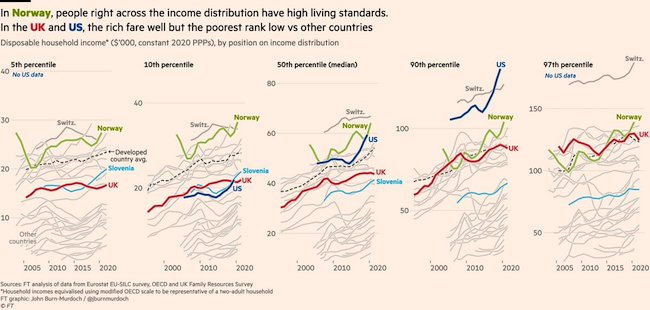

Sagan budget
On February 9, 1990, Carl Sagan gave this speech before the 5th Emerging Issues Forum at NCSU, expounding on climate observations and energy strategies for a sustainable future, emphasizing solar
[full speech: https://t.co/CLrxMp45kn]pic.twitter.com/BIMps9e0ZY
— Massimo (@Rainmaker1973) September 17, 2022

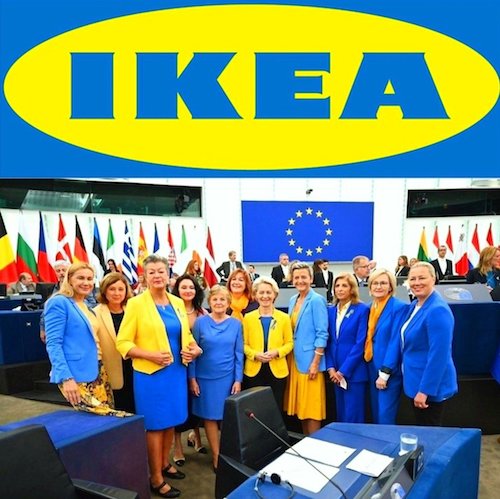

Pool party
https://twitter.com/i/status/1571061288561774599

Support the Automatic Earth in virustime with Paypal, Bitcoin and Patreon.




